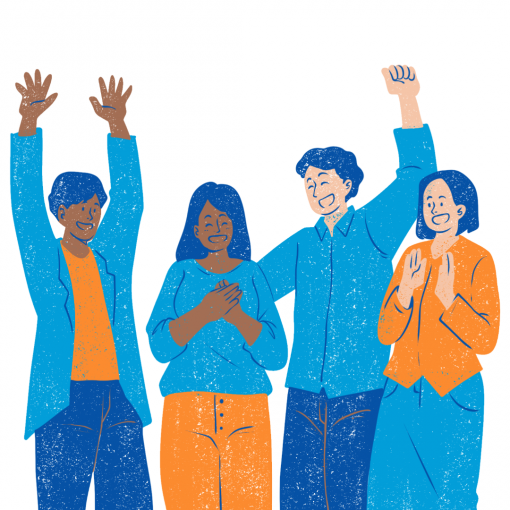The Importance of Second Chances
April is Second Chance Month. To celebrate the Second Chance Act of 2008, which was passed to reduce recidivism and improve outcomes for returning citizens, we are going to take a look at second chances. While striving for a more compassionate and inclusive society, justice-involved individuals are often overlooked. In a society that seemingly values rehabilitation and second chances, it’s important to extend that to those who were previously incarcerated as well. In this blog post, we will explore the importance of second chances without barriers and the impact that they can have not only on returning citizens, but society as a whole.
Understanding the Stigma
- To start, it’s important to look at the stigma that justice-involved individuals face when attempting to reenter society. It is crucial to recognize and acknowledge the stereotypes and the hinderance they can be. Barriers are created to fair employment, housing, and social acceptance. By properly addressing these biases, a path to a more equitable society can be paved.
Rehabilitation Over Retribution
- A key part of granting second chances is by emphasizing rehabilitation over retribution. A cycle of criminal behavior can occur from pushing punitive measures rather than giving second chances. Focusing on providing access to education, vocational training, and mental health services helps to foster personal growth and reduce the vulnerability of reoffending.
Education and Employment
- Securing employment and educational opportunities prove to be great hurdles for justice-involved individuals. A difference can be made by integrating education and job training within correctional facilities as well as advocating for fair hiring processes outside of them. A second chance to develop new skills and knowledge can contribute to an increased likelihood of successful reintegration.
Community Support
- A network of support available for justice-involved individuals during the reintegration process is paramount. Community assistance could include establishing mentorship programs, halfway houses, or support groups. Creating this network fosters a sense of belonging and can reduce the isolation that most previously incarcerated individuals may experience while trying to rebuild their lives.
Breaking the Cycle for Future Generations
- A second chance isn’t just about one individual, it’s about generations. By giving second chances it helps break down the cycle of intergenerational involvement with the justice system. The support and opportunities for rehabilitation extended to returning citizens contributes to a safer and more stable environment for families and communities as a whole.
A second chance for returning citizens is a direct reflection of the compassion, justice, and human dignity of society as a whole. By recognizing and acknowledging the need for second chances, we are able to break down barriers and become a more equitable society. Understanding the stigma, emphasizing rehabilitation over retribution, fostering community support, and focusing on future generations are all at the heart of second chances. Embracing second chances not only benefits justice-involved individuals, but also the communities they become a part of. By extending second chances we are able to shape a more just and compassionate world for everybody.




